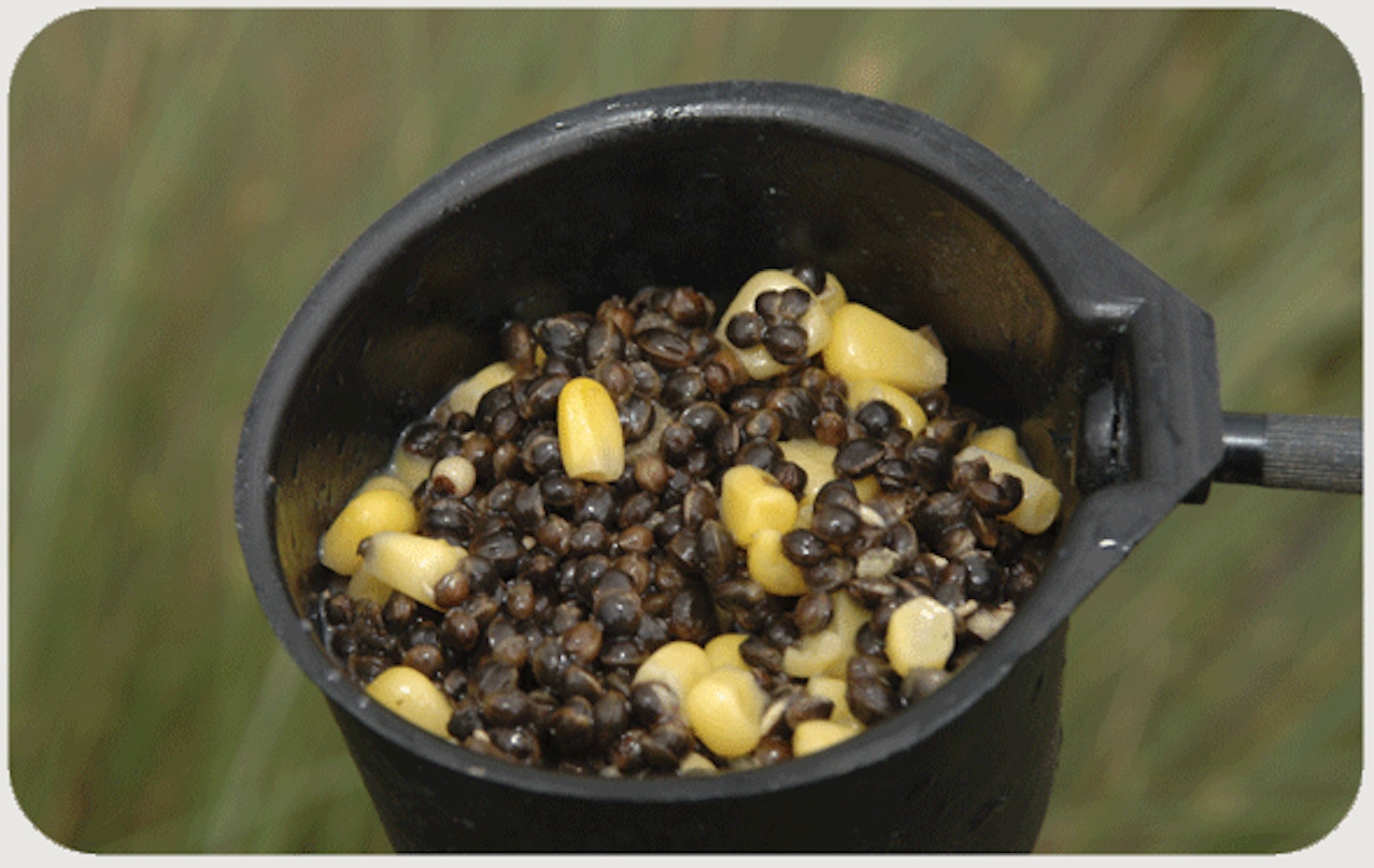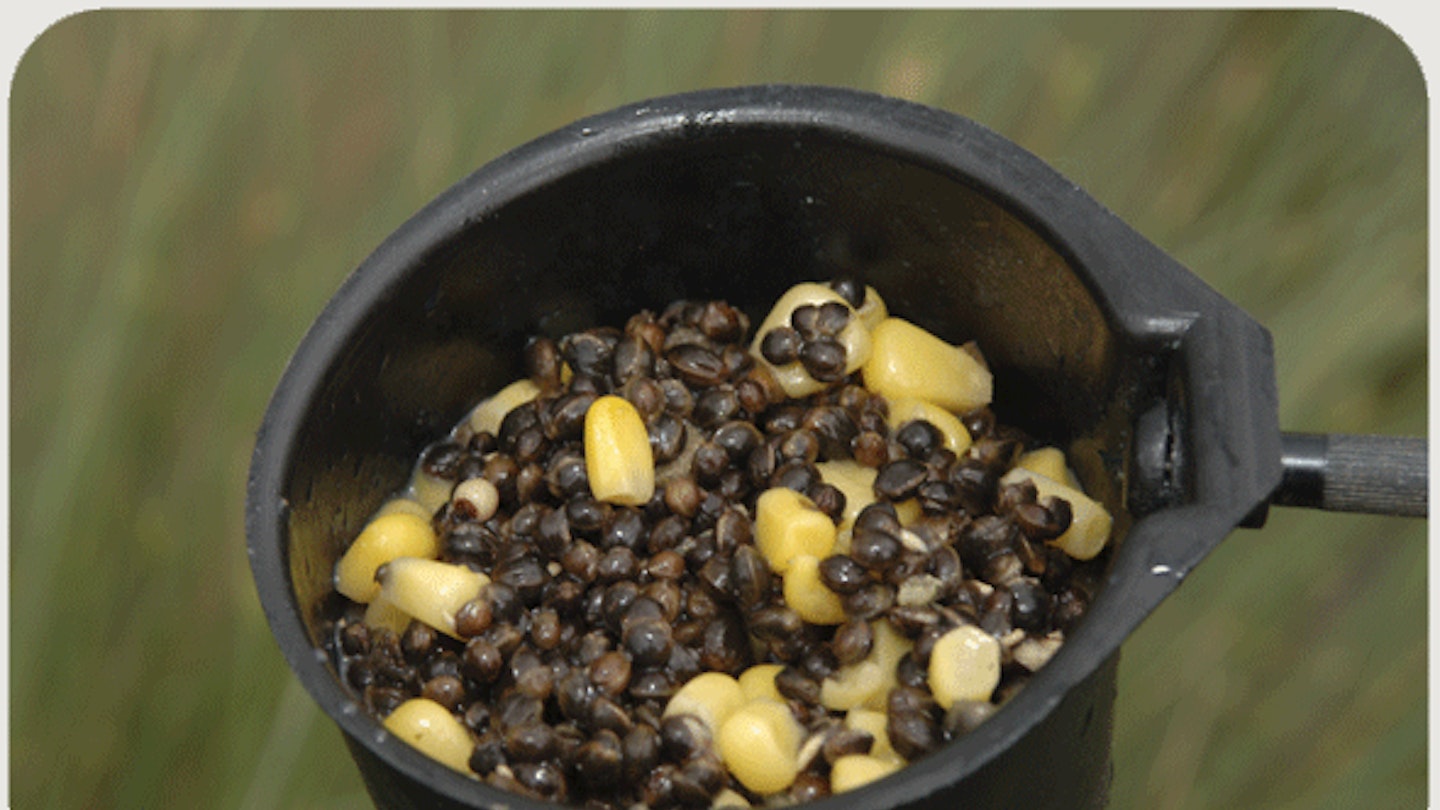What is hemp seed?
You may have read about hemp, often referred to in old books as ‘the demon seed’. It was for a long time extremely controversial and banned on a lot of waters but in recent times, anglers have come to see hemp for what it is – a deadly coarse fish catcher.
Hempseed is the seed of the cannabis plant but that doesn’t mean the seeds anglers use can be whacked in a Rizzla and puffed away on! Fishing hemp is treated so that it cannot grow and often cooked so that the seed splits.
Black in colour and the size of a tiny piece of gravel, one line of thinking is that fish mistake the seeds for small black snails in amongst the lake or riverbed. Old thinking reckoned the fish became pre-occupied with the seeds, using its link with cannabis to suggest the fish were drugged.
This is of course nonsense but fish, especially roach, prize hemp above all other baits and no sensible roach man on a river would be without a couple of pints of seed at any time of year. It’s also a great bait for laying down a big carpet of feed for species like tench, carp, chub and barbel.
How do I use it?

Hemp is quite a weighty bait and will sink easily so can often be fed by hand. In swift river currents, a bait dropper is a better bet but strangely, it never quite works when fed in groundbait. For laying down a big bed of bait, simply ladle the stuff in. Roach require a more delicate approach with constant little and often loosefeeding via a catapult. Another great way is to dump a load of hemp into your swim usign a pole cup, pictured above.
How much does it cost and from where?
Cooked hemp is normally sold across the tackle shop counter in pints and the price can vary but around £1 is right. Some bait companies sell hemp in bulk plastic jars with one jar enough to last several sessions.
Can I boil my own?
You can but it is a smelly process! Uncooked hemp is available in bulk sacks of up to 25 kilos from bird feed merchants and to cook, simply put the amount of seed you need in an old saucepan (not your wife’s best!) and cover with water.
Bring to the boil and then simmer uncovered gently.
Adding a spoon of Bicarbonate of Soda can help darken the seeds even more. By this point the seeds will pong of old socks so keep a window or two open!
Keep checking the seeds and once they start to split, revealing the white kernel inside, they are cooked. Drain and leave to cool before measuring out with a pint pot into plastic bags for freezing.
There is a non-smelly way to cook hemp though. Just three-quarters fill a flask with dried, uncooked hemp, pour boiling water in to fill the flask and seal the lid. Give the flask a shake and leave it for an hour. The seeds should have split by then and be ready to use.
All particles - hemp and tares included - need to be prepared correctly before use. This means that they either need boiling, soaking or simmering for a set time.
Can you use hemp for hookbait?

It is a fiddly process but for picking off better roach, hemp is hard to beat. Try and source larger grains of seed (often known as Chilean Hemp) and prepare much the same as your feed grains. However, it can be worth cooking your hookbaits for a little less time, making them tougher and so easier to hook.
Hooking them is hard to master and one of the best ways is to pre-prepare a couple of dozen grains before you set off to the bank. Select the biggest grains with a decent split and punch a hole in the flat base of the seed (where the seed was attached to the plant) using a baiting needle or the wire stem of a pole float.
Once on the bank, use a wide gape fine wire hook (the Kamasan B511 or Mustad Wide Gape Canal Seed are excellent) and push the point through the punched hole. Ease the bend around the inside of the seed and bring the point out through the split, making sure there is plenty of hookpoint showing.
Hooked this way, the grain should stay on for several fish.
What about tares?

Hemp and tares are a brilliant combination for river roach and it’s always handy to have a handful of tares with you. A tare is a cooked pulse that is commonly used for horse and pigeon feed and are quite soft, making them easy to hook.
Generally speaking, once the fish are lined up on hemp hookbaits, switch to a single tare on a large wide gape hook such as a size 16. Bites will be positive and the fish of a far better average stamp than on hemp – however, they won’t always work so don’t spend too long fishing tares if you aren’t getting bites.
